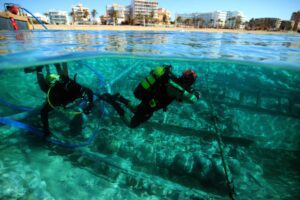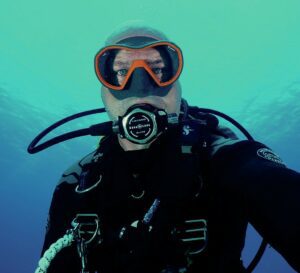In the first of a series of articles, lawyer Andrew Tonge examines the legal rules that govern the training of recreational and technical divers.
This is the first of a short series of articles in which I will look at the Diving at Work Regulations 1997 (DWR) and, following the changes in December 2014, the second edition of the Approved Code of Practice for Recreational Diving Projects (ACOP).
This article, as with the other articles I have written and will write, is not legal advice, but is simply by way of illustration. Each case or set of circumstances is wholly different and before any steps are taken, a diver that is unsure of his or her legal position should take specialist legal advice.
In this article I will look at the basis of the ACOP, its legal effect and when and by whom it must be adhered to.
Legislative and Regulatory Framework
The DWR (and the ACOP) are part of the legislative and regulatory legal framework governing diving in Great Britain.
Of course, the DWR and the ACOP do not stand alone in the legislative and regulatory framework. There are a number of other legal requirements on divers in the general law of England and Wales, which must be adhered to.
Some. but by no means all of those other legal requirements, are covered by the DWR and ACOP – such as the requirement under section 3 of the Management of Health and Safety at Work Regulations 1999, that every employer carries out an assessment of risks posed by the work to the health and safety of employees and non-employees; the DWR and ACOP set out the detail of that required risk assessment in diving related work.
Legal Status of the ACOP
On 13 August 2014, pursuant to the Health and Safety at Work etc Act 1974 (HSWA), and with the consent of the Secretary of State for Work and Pensions, the Health and Safety Executive (HSE) approved the second edition of the ACOP. The second edition of the ACOP came into force on 8 December 2014.
The first edition (1998 ACOP) was replaced by the second edition ACOP. For diving carried out before 8 December 2014, the first edition 1998 ACOP will still apply. For diving carried out on the 8 December and thereafter, the second edition ACOP will apply.
Although the ACOP has a specific legal status, the ACOP is not strictly law.
The ACOP gives guidance on complying with the requirements of the law as detailed primarily in the DWR and in part in the HSWA. Again, it is must be remembered that there may be other legal requirements under the HSWA and elsewhere that are not covered by the ACOP.
The ACOP itself states that you may use alternative methods to those set out in the ACOP in order to comply with the law to which it applies.
However, if you are prosecuted for breach of the health and safety law relating to diving and it is proved that you did not follow the ACOP, you will need to show the Court what else you did to comply with the law, including the DWR.
In the ACOP, the HSE (the government body that investigates and prosecutes breaches of health and safety law) states its view to be that if you do follow the ACOP you will normally be doing enough to comply with the law.
Scope and Application of the ACOP
The ACOP applies to all recreational diving projects within the 12-mile limit of territorial waters adjacent to Great Britain.
The ACOP states that it applies to diving projects:
- Where at least one person taking part in the project is employed or self-employed and at work.
- The equipment and techniques are confined to free swimming using SCUBA.
- The purpose of the project is recreational diving, that is diving carried out by a person for recreational purposes while not at work.
The ACOP also states that it applies to journalists in the recreational diving press (including photographers).
Diver at Work
The ACOP states that it does not cover diving activities where no one is at work. The problem with this statement is that a diver at work is not easy to define.
It was hoped that the second edition ACOP would better define a diver at work than the previous ACOP, so as to remove the confusion as to when the ACOP applies.
The UK recreational diving industry includes a mix of divers who are employedor self-employed in the traditional sense, such as employed or contracted by a dive shop or school (full or part time) and volunteers.
The ACOP at paragraphs 11 and 12 states very clearly that a diver at work is an employee or self-employed person including those who dive as part of their duties as an employee and divers who are in business on their own account during the time that they devote themselves to work as a self-employed diver.
It must be remembered that the Courts of England and Wales do not deal only with diving related cases and that concepts of employee, self-employed and being in business on ones own account are defined and applied time and again, day-to-day, in the Courts.
For example, to own company shares at the same time as being a director, may not give rise to employment under employment or tax law. It is quite common in small companies for no one to be an employee and where that is a company carrying out diver training or guiding, that could result in a customer paying to be trained or guided, where on strict interpretation one may say that the ACOP (and the DWR) does not apply.
For many, that may seem an absurd outcome from regulations designed to protect the public where they pay to be trained as divers.
It may be that these issues will only be finally decided in a Court room in a specific case.
It is interesting that the HSE website states: ‘If divers are paying for training from a diving instructor or there is a dive guide employed then the Diving at Work Regulations 1997 will apply.'
That may not in itself be a definite interpretation of the ACOP (or DWR). To pay a company to train you might not in itself mean that any of those instructing you in the water are employed or self-employed.
The same uncertainty seems to apply to the status of volunteer divers in the project, including instructors or divemasters.
Previously, there was a view in the UK diving industry that volunteers who were in receipt of benefits (such as discounted courses or air fills) were thereby defined as being divers at work, hence the ACOP and DWR applied.
On the HSE website, it states: ‘..any person taking part in a diving project who is either being paid (or in receipt of favour or reward) or whose involvement in a diving project is required for that project to be carried out in accordance with DWR97 should be considered to be at work.'
Again, this may not be a proper interpretation of the ACOP or the DWR but it does show that the HSE, the diving police, if one looks at it that way, want to stretch the effect of the ACOP as wide as they can and it makes good sense for all those engaged in training divers to do the same.
Maybe these issues will be dealt with in the next revision or edition of the approved code of practice.
Free swimming using SCUBA
This aspect of the application of the ACOP appears to be less contentious and I do not propose to address it any further.
Purpose of the Diving Project
The ACOP defines the purpose of recreational diving as diving carried out by a person for recreational purposes while not at work.
One must assume that the reference to while not at work is to the customer and not the working divers which trigger the application of the ACOP in the first instance. That appears to leave open the question of whether the ACOP applies where the diver being trained is at work, such as in the training of a divemaster or instructor or other staff employed by the dive shop or dive school?
For now, as where the training is for the customer who is not at work, the simplest approach appears to be to adopt the ACOP (and DWR) whenever and howsoever you train or guide divers, whether you are employed or not.
As this approach may provide a defence to prosecution in the criminal Courts it may also provide a way of showing that you adhered to a sensible set of industry practices which may assist in providing a defence to a action for damages/compensation in a civil Court and adherence to the ACOP may therefore be something that your insurer (and PADI) would rather you did than did not.
In future articles I will go on to explain some of the legal standards and implications of the DWR and ACOP.
Andrew Tonge is a lawyer and director at Nexus Solicitors Limited, Manchester, where he acts for a number of businesses in the diving and subsea industry. He is also a PADI technical diving instructor and experienced diver. All views shared within this article are his own.








